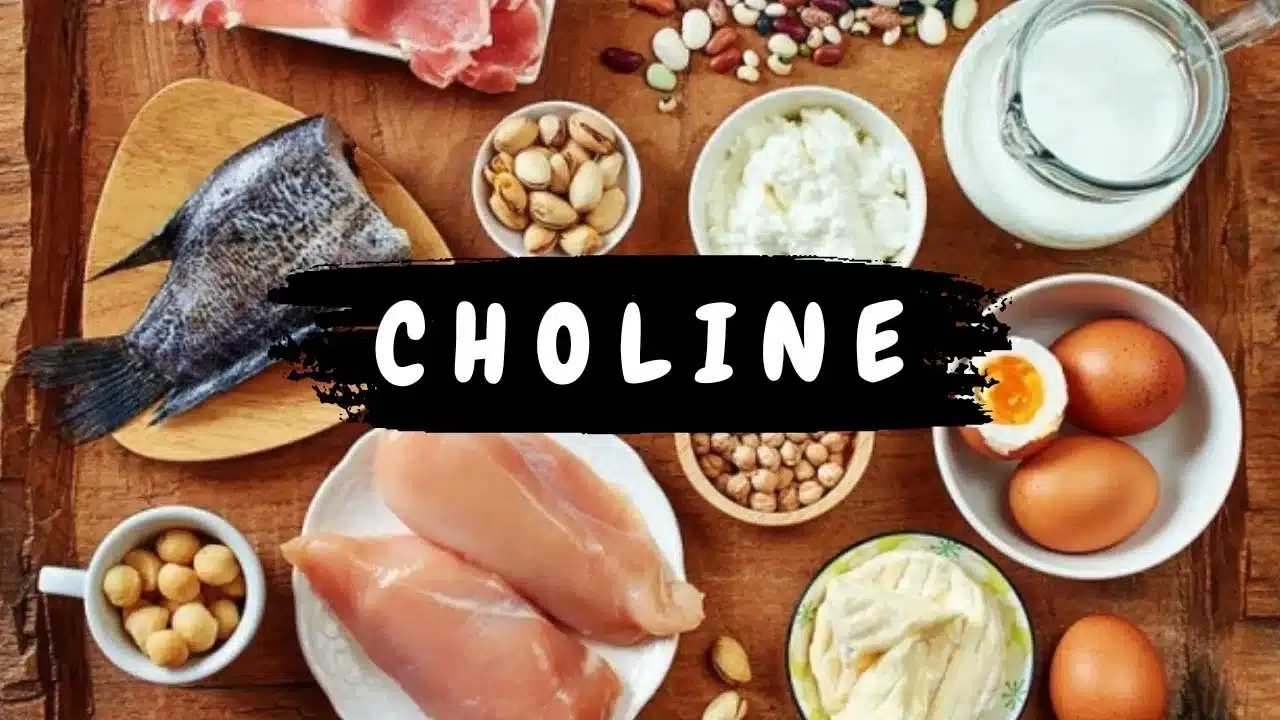About Choline:
- It is an essential nutrient that supports various bodily functions, including cellular growth and metabolism.
- It exists as both water-soluble and fat-soluble molecules. The body transports and absorbs choline differently depending on its form.
- The body can also produce small amounts of choline on its own in the liver, but not enough to meet daily needs. As a result, humans must obtain some choline from the diet.
- The richest dietary sources of choline are meat, fish, dairy, and eggs. Many fruits, vegetables, and whole grains contain choline as well.
- Functions:
- Cell structure: It is a constituent of an important class of lipids (fats) called phospholipids (e.g., lecithin), which form structural elements of cell membranes. Therefore, all plant and animal cells need choline to preserve their structural integrity.
- It serves as a source of the methyl groups (―CH3 groups), which are required in various metabolic processes.
- Liver Health: Choline is also required to clear cholesterol from your liver. Deficiencies cause fat and cholesterol accumulation in your liver, which puts you at risk for nonalcoholic fatty liver disease.
- A healthy nervous system: This nutrient is required to make acetylcholine, an important neurotransmitter. It’s involved in memory, muscle movement, regulating the heartbeat, and other basic functions.
- Choline also plays important roles in modulating gene expression, cell membrane signaling, lipid transport and metabolism, and early brain development.
- It is also “food” for beneficial gut bacteria.
Choline deficiency can lead to health conditions, such as cardiovascular disease and muscular damage.
Q1: What are neurotransmitters?
Neurotransmitters are chemical messengers that your body can’t function without. Their job is to carry chemical signals (“messages”) from one neuron (nerve cell) to the next target cell. The next target cell can be another nerve cell, a muscle cell or a gland.
Source: UQ research finds molecular doorways to help deliver drugs into the brain
Last updated on June, 2025
→ UPSC Notification 2025 was released on 22nd January 2025.
→ UPSC Prelims Result 2025 is out now for the CSE held on 25 May 2025.
→ UPSC Prelims Question Paper 2025 and Unofficial Prelims Answer Key 2025 are available now.
→ UPSC Calendar 2026 is released on 15th May, 2025.
→ The UPSC Vacancy 2025 were released 1129, out of which 979 were for UPSC CSE and remaining 150 are for UPSC IFoS.
→ UPSC Mains 2025 will be conducted on 22nd August 2025.
→ UPSC Prelims 2026 will be conducted on 24th May, 2026 & UPSC Mains 2026 will be conducted on 21st August 2026.
→ The UPSC Selection Process is of 3 stages-Prelims, Mains and Interview.
→ UPSC Result 2024 is released with latest UPSC Marksheet 2024. Check Now!
→ UPSC Toppers List 2024 is released now. Shakti Dubey is UPSC AIR 1 2024 Topper.
→ Also check Best IAS Coaching in Delhi
























